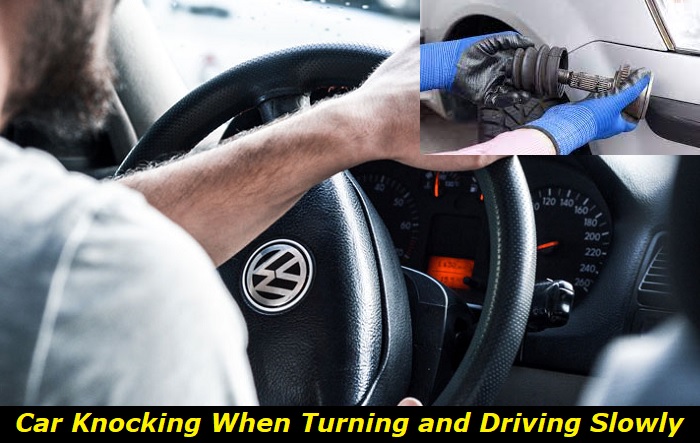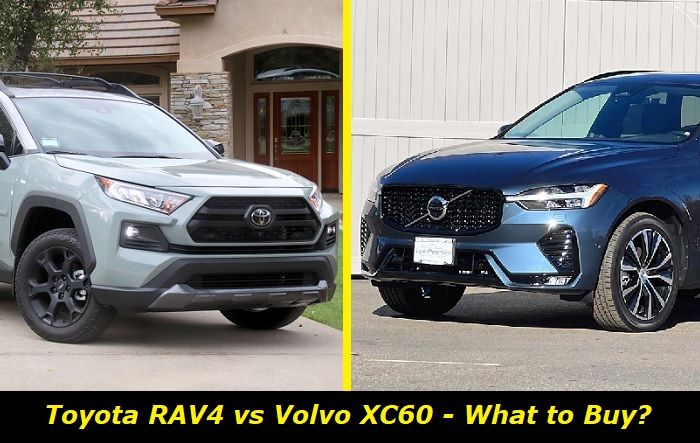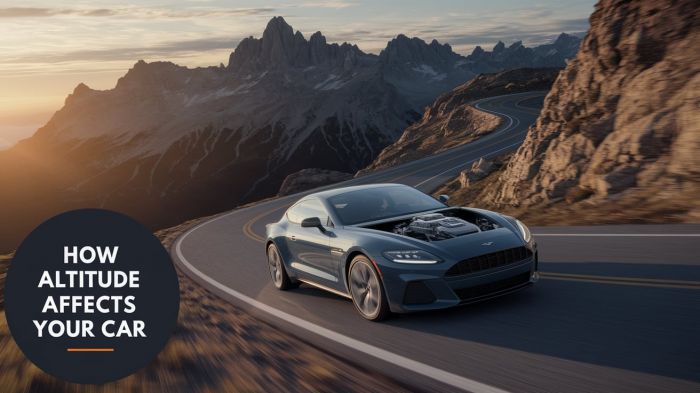Your vehicle may knock because of too many reasons. But you will desperately want to know why it's knocking and how to fix the problem. We've seen different drivers who take those knocking sounds extra nervously or super calmly. But all of them want to find out the reason and fix their cars as soon as possible to avoid worse consequences.
Front suspension problems highlights
- Level of importance:high
- Common reasons:road potholes, speed bumps, age, mileage
- DIY inspection:possible but complicated
- DIY repair:usually,impossible
- Average price in shops:$250 - $800
- Average time:2 - 8 hours
- If ignored:fatal failure, no drive, expensive repairs

Diagnosing knocking wheels on your own and with specialists
Locating the issue that causes knocking sounds is not that easy in modern cars. Some vehicles will need only professional diagnosis with special tools and equipment. But when it comes to knocking in the area of wheels, every car has more or less the same engineering solutions. So, you will be able to diagnose the issue and find the exact part that needs replacement.
First of all, you should understand the nature of the knocking sound. For this, do the following:
- get into your vehicle, start the engine, and start driving in a safe place;
- turn the steering wheel right till it reaches the limitation and drive a couple of meters, listen to the sounds;
- then turn the steering wheel left till it reaches the limitation and drive a couple of meters slowly, listen to the sounds;
- register if you feel the knocking on your steering wheel or on the pedals;
- stop the vehicle safely and shake the front wheels with your hands from side to side - register if you feel any play.
This way, you will figure out several important things. Let's see what exactly you can learn after such a quick diagnosis:
- if your car knocks only when you turn and drive, most likely, you have problems with outer CV joints;
- if the wheel has some play when you shake it, the problem can be also with other suspension elements;
- if you feel the knocking on your steering wheel and pedals, the problem may be with the steering rack or steering column elements;
- after checking these issues, you can locate the exact problem or just give more information to a mechanic.
Locating the issue may be harder than you think. You should check a lot of units in the suspension and steering system when you feel or hear knocking when the car is turning and moving slowly. If you don't know anything about your vehicle's suspension, better let professionals do this job for you.
A wrong diagnosis may lead to extra costs when you are repairing the vehicle. So, it's important to locate the problem before spending any money on parts or labor.
What are the most common reasons for knocking when the car is turning?
Your vehicle may knock on so many reasons that finding the exact problem will be super hard for an inexperienced driver. You need to know the special features of the suspension system in your vehicle to make any conclusions.
But we'll figure out some of the most common issues that can lead to such knocking. Let's review some of them.
1. CV joints
In most cases, outer CV joints will lead to knocking when your vehicle is turning and moving slowly. This knocking sound will be pretty loud and it will remind cracking or crunching. When you drive straightforwardly, the sound may be less noticeable or it may disappear.
The outer joint consists of two parts that have to work against each other with a precise distance between them. If something goes wrong like the lubricant going out or some mud getting into the system, the CV joint quickly dies and starts crunching when you turn.
2. Shock absorber supports and bearings
Shock absorber supports are the parts that connect the shock absorber to the car body above your wheels. These parts are equipped with bearings that allow the whole wheel module to turn when you need to change the direction of the vehicle. These bearings are not eternal and can fail which will lead to loud knocking sounds when you turn.
You will most likely feel these sounds on the car's body. They will develop from barely noticeable to unbearable really fast. Driving with failed shock absorber supports and bearings is unsafe - you should have the vehicle repaired as soon as possible.
3. Steering rack, tie rods, or tips
The steering rack is part of your vehicle that will only live 100K miles or so and then will require some repair or replacement. Also, the tie rods and steering tips will fail if you drive a lot off the road or on poor-quality roads. This will inevitably lead to knocking sounds when you turn.
First, check the rods and tips - they are cheaper and easier to replace. If it's all about the steering rack, the repair will cost you much more. The rack shouldn't always be replaced - sometimes it can be repaired and it can easily go another 100K miles.
4. Stabilizer bar and poles
The stabilizer system allows your vehicle to move more or less smoothly when the road is not perfect. Again, if you drive a lot on bad roads, your vehicle will develop problems with the stabilizer quite fast.
This thing will knock occasionally when you are driving straight but when you turn, the knocking sounds will become much louder. Ignoring the stabilizer problems is not a good idea as it may develop into more suspension problems.
5. Suspension silent blocks are worn
Your suspension has several silent blocks which are essentially the rubber-and-metal parts that take some knocks on them and protect the suspension parts from knocking against each other. In most cases, the knocking will occur at all times wherever you turn if the silent block is bad. But sometimes, the failed silent block may only knock when you are turning the steering wheel when driving.
In most cases, the front suspension arm silent block will cause this knocking. You may literally feel it under your legs or under the legs of the front passenger.
6. Coil springs or shock absorber problems
While failed shock absorbers will knock at all times, they may start knocking only when you turn because in these cases, they get more pressure. Also, the coil springs may knock only when you turn the vehicle because the massive load during the turn may make them move harder.
Checking them up is easier than other parts. Approach your parked car from the front side, gently push on the hood from the side and try to shake the vehicle a little. You will hear the knocking sound if the shock absorbers or the coil springs are bad.
Fixing and preventing the knocking sound when turning the car
To fix any of these issues, you will need some professional help. We don't claim this is not a DIY job but for this, you will certainly need a lot of experience and knowledge. If you are not a car mechanic, better let professionals do their job.
In terms of preventing these issues, there are many more cool things you can practice with your vehicle. Here are some of them:
- avoid driving on bad roads, especially speeding up your car in such circumstances;
- don't ignore any unusual sounds you hear in your vehicle;
- buy high-quality parts, always prefer OEM parts over aftermarket offers;
- have the suspension of your car diagnosed every time your vehicle is on regular maintenance;
- inspect the CV joint rubber covers - if they fail, the CV joint will be dead soon;
- don't drive your car for too long if you hear knocking sounds, they may go worse;
- after getting into one of the road pits or some other accidents, have the suspension checked and diagnosed by a professional.
Now you know what to do if you hear the knocking sound when you turn your vehicle and drive slowly. Although this is most likely the CV joint, you should check all the possible options.
Final thoughts
A knocking sound in your vehicle when turning is not a sign of a dead car. It just says that the vehicle will need some more attention from you. Have it diagnosed and find out what the problem is. After that, have the car repaired. In most cases, this will not cost you a lot of money but the eventual bill from the dealer or the repair shop depends on the model of your car.
About the authors
The CarAraC research team is composed of seasoned auto mechanics and automotive industry professionals, including individuals with advanced degrees and certifications in their field. Our team members boast prestigious credentials, reflecting their extensive knowledge and skills. These qualifications include: IMI: Institute of the Motor Industry, ASE-Certified Master Automobile Technicians; Coventry University, Graduate of MA in Automotive Journalism; Politecnico di Torino, Italy, MS Automotive Engineering; Ss. Cyril and Methodius University in Skopje, Mechanical University in Skopje; TOC Automotive College; DHA Suffa University, Department of Mechanical Engineering






Add comment